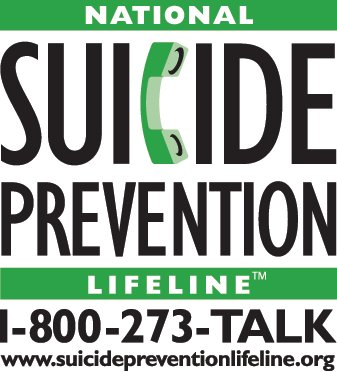

 
|

|
Losing someone to suicide can feel devestating. Suicide is a unique death: it leaves loved ones with tremendous pain, sadness, helplessness, and anguish.
Each year over 30,000 people in the United States alone die by suicide. Research shows that during the course of our lifetimes, 85% of us will lose someone we care about to suicide. That means that there are millions of survivors who, like you, are trying to cope with this heartbreaking loss. Friends and family members left behind are known as "survivors". Many survivors struggle to understand the reasons for the suicide, asking themselves, "Why?!", over and over. Many replay their loved ones' last days, searching for clues, particularly if they did not see any warning signs about the impending suicide. They check with friends, they comb through belongings, they search unrelentingly to find an answer. For religious persons, questions may linger about whether the person went to heaven. This happens because suicide is often poorly understood and some survivors feel unfairly victimized by the stigma associated with suicide. They know that suicide is often handled in a "hush-hush" fashion. Survivors may also feel that suicide is shameful, or that they (or their family) are somehow to blame for the tragedy. Suicide can bring people together, but it can also tear families apart. There are a number of things survivors can do to help get through the healing process. Do not hesitate to seek professional help if you feel you need assistance. Sometimes the burden of losing someone to suicide can give rise to suicidal thoughts and feelings in survivors. You may also experience anxiety, a loss of appetite, insomnia, anxiety, crying spells, loss of memory, or nightmares. Depending on the individual, these incidents can go on for weeks, months, and even years. Sometimes you may need to seek out professional counseling to help you get through these problems. Friends are very important in the recovery process. But, friends should be willing to listen and be slow to judge. They should be understanding and allow the survivor to talk. Because of the stigma surrounding suicide, survivors are often hesitant to openly share their story and express their feelings. They should understand that a survivor opening up to them required a great deal of trust. Faith is very important in the healing process. Many people attest that it was only by God's Grace that they were able to recover from a loved one's suicide. Surrounding yourself with people with similar beliefs who are willing to pray and offer support can be very helpful in the healing process. Many survivors also turn to suicide support groups. These groups are a good resource for the healing process and many survivors find them helpful. Support groups help survivors express their feelings, tell their story, and share with others who have experienced a similar event. For healing to occur, you must overcome any preconceptions you have about suicide and the suicide victim. This is best accomplished by educating yourself about suicide. While you may feel uncomfortable discussing suicide and its aftermath, survivors of loved ones lost to suicide are in great pain and in need of your compassion. An abundance of resources and information is available to survivors about suicide. At this website, you will find a great deal of information about research and statistics, how to make referrals, recognize suicide warning signs, help others, and help yourself.
|
JOIN NOPCAS TODAY!
By joining NOPCAS, you receive access to the following: ◦NOPCAS resources and publications ◦Early-bird conference and event discounts |
Donations
|
||

|
| Copyright © 2011 | NOPCAS, P.O. Box 75571 | Washington, D.C. 20013 | All Rights Reserved |